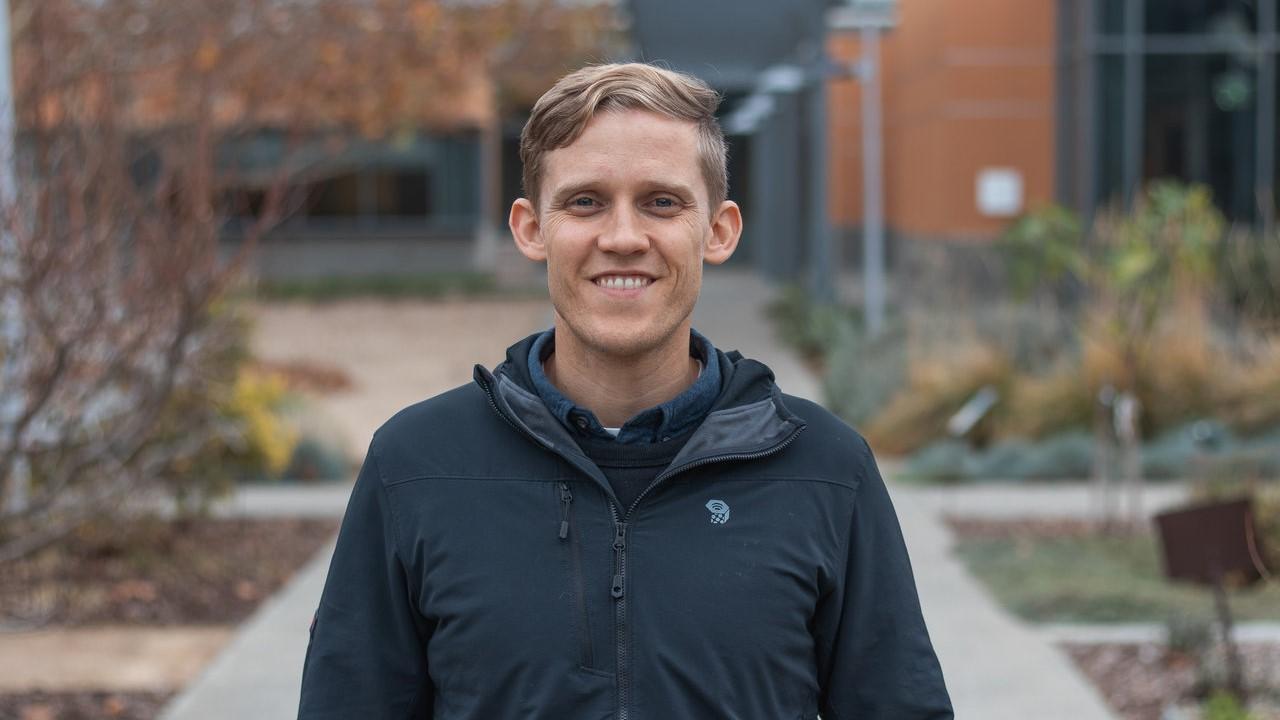
Mason Earles: Algorithms and Agriculture
As the climate changes, farmers need new, high-tech tools to precisely measure resource use and predict yield so they can produce crops with less water, fertilizer and pesticide. New BAE assistant professor Mason Earles is bringing expertise in artificial intelligence (AI) to this new era of agriculture by developing algorithms to help farmers better and more efficiently grow, treat and harvest their crops.
“AI and agriculture combines two things I know a lot about,” said Earles. “It doesn’t seem like a traditional pairing, but as a result, there’s a lot of opportunity.”
A problem farmers face is that every crop has a unique environment, climate, management strategy and growth pattern, and even that might change from season to season. This is without mentioning that different varieties of the crop can inhabit the same field or orchard. The goal is to create a general but robust AI system to account for this and be easily applied to each scenario.
Teaching Machines about Agriculture
To do this, Earles says, researchers need to adapt or develop algorithms specifically for agriculture. This means imparting machines with a farmer’s knowledge of agriculture, plant physiology and growth so they can understand the mechanisms and limitations of biology and make accurate predictions.
“We need to start developing domain-specific tools,” he said. “We have all this prior knowledge about plants, but the question is can we embed that into the basic foundation of these AI algorithms that can go out in the field and make real-time detections?”
If they can do this, the algorithms can be equipped on ATVs and drones to make autonomous decisions or help farmers make better-informed decisions on exactly how much water or fertilizer each individual plant is getting, as well as predict the effect on crop yield well before the crop matures. This information allows farmers to allocate resources accordingly and get the most out of their crops.
To train the system for any situation it’s given in the field, Earles and his collaborators will use computer modeling. Researchers can photorealistically render entire orchards in virtual reality with accuracy down to the leaf and can simulate millions of different scenarios of how plants might grow, multiplying the efforts of field-based training. Earles and his team will then test the machine in the field to verify results and prepare it for widespread use.
“AI and agriculture—this is only the very beginning,” he said. “I think we’re going to see a massive expansion both at UC Davis and in the field.”
Combining Interests
Earles’ research combines his two areas of expertise. As an M.S. student at the University of Maine and a Ph.D. student at UC Davis, he used image processing, computer vision and machine learning to study the mechanisms that make plants work. After completing a postdoctoral scholarship at Yale University, he worked as a data science engineer at Apple, where he expanded his knowledge on deep learning, computer vision and artificial intelligence.
He decided to combine his backgrounds and apply for a faculty position at his alma mater because of its focus and enthusiasm for agriculture and plant sciences. He joined as a faculty member in fall 2019 with a dual appointment in the Department of Viticulture and Enology and the Department of Biological and Agricultural Engineering.
As he establishes himself on campus, he looks forward to teaching and mentoring students and working one-on-one with them.
“I feel like I learn the most through that process,” he said. “It’s amazing how quickly a student will know more than I do about something. I get to learn a lot, they get to learn a lot and I think having that kind of interaction is very rewarding.”
Earles likes the campus’ emphasis on bringing people from different backgrounds together to solve common problems. He hopes to harness this to recruit engineers and computer scientists to apply their skills to agriculture to solve the field’s greatest challenges
“I can be pretty happy just solving problems all day long, but I’m thrilled to be able to solve problems related to something that has a big impact on the environment, on society and on California,” he said.
When he’s not busy solving problems, Earles is a musician who plays guitar and mandolin with his friends.
